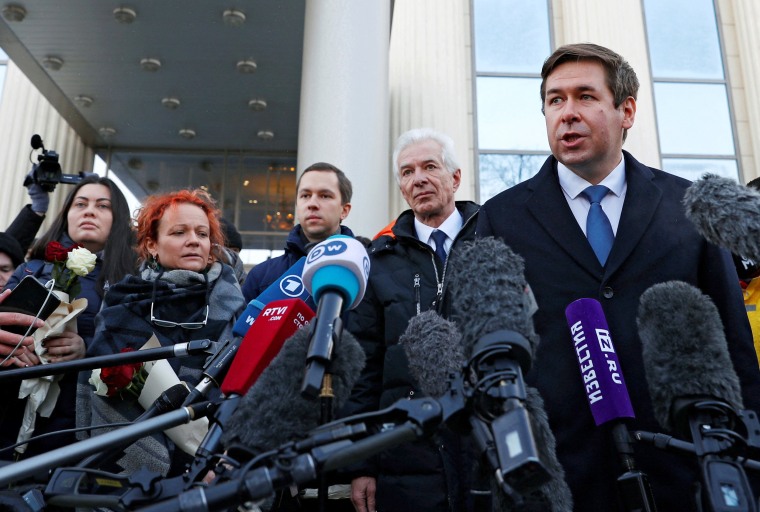A court on Wednesday ordered the closure of Russia’s Memorial Human Rights Center, a day after its sister organization and the country’s oldest human rights group was ordered to disband by the Supreme Court.
State prosecutors had accused both organizations of breaking a law requiring them to act as “foreign agents.” Both said the charges against them were politically-motivated.
Prosecutors at Moscow City Court said Wednesday that Memorial Human Rights Center was conducting “non-transparent financial activity,” Russian state media agency Interfax reported, including inadequately reflecting its revenue and expenses.
Prosecutors also said the organization concealed the receipt of foreign funding by not complying with the requirements of the law on labelling its materials as that of a “foreign agent." They said the organization's publications were also found to contain "signs of approval of extremism and terrorism," according to Interfax.
The center’s lawyer Maria Eismont has already told TASS state news agency they will appeal the decision.
International rights groups and the U.S. State Department strongly condemned Tuesday’s ruling against the center's sister organization Memorial International, Russia’s oldest and most prominent human rights group that chronicled the history of repression in the Soviet Union.
Memorial International said in a statement after the ruling it would appeal the verdict and find “legal ways” to continue its work.
The two court decisions cap off a year of unprecedented crackdown on dissent in Russia.
Memorial closures bookmarked a year in which Alexei Navalny, the Kremlin’s top critic, was jailed, his movement banned and many of his allies forced to flee.

Moscow says it is simply enforcing laws to thwart extremism and shield the country from what it says is malign foreign influence.
Critics say that Vladimir Putin, in power as president or prime minister since 1999, is turning back the clock to the Soviet era when there was zero tolerance of dissent, and the legal assault on Memorial is an attempt to whitewash Soviet Russia’s darkest chapters, which do not chime with the Kremlin’s narrative of a resurgent country with nothing to be ashamed of.
Established in the final years of the Soviet Union, Memorial initially investigated the crimes of the Stalin era, but later broadened its remit to looked into modern-day abuses too.
That irked the authorities who sometimes accused the group of siding with extremists.

